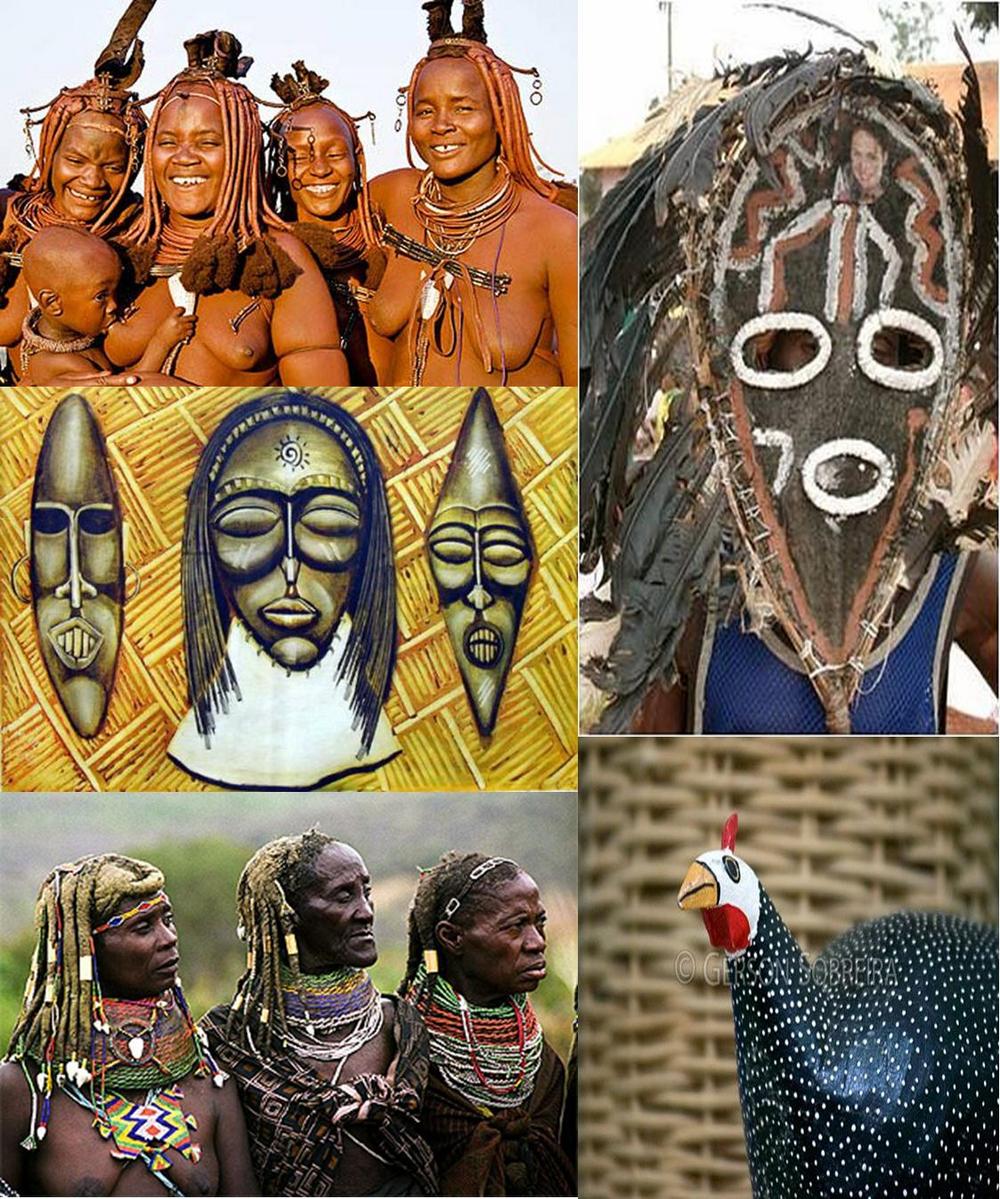Angola is a pluri-ethnic and multicultural country, whose identity was forged throughout the centuries with a quarrelsome history, made of socio-economics, biological, cultural and linguistic exchanges between intervenient of many origins, some of them coming from outside the continent. All this conformed a society sui generis, even in the context of the other African countries colonized by Portugal, where peoples of different characteristics and different level of development coexist, ones more opened, above all the ones of urban culture, to all the innovations and influences comings of the exterior and others, more confined to the agricultural world, practically conserving its traditions and forms of life unbroken, with their proper languages and practical social behaviours perfectly differentiated in the national picture.
Angola has three main ethnic groups, each speaking a Bantu language: Ovimbundu 37%, Kimbundu 25%, and Bakongo 13%. Other groups include Chokwe, Lunda, Ganguela, Nhaneca-Humbe, Ambo, Herero, and Xindunga. In addition, mixed racial (European and African) people amount to about 2%, with a small (1%) population of whites, mainly ethnically Portuguese. Portuguese make up the largest non-Angolan population, with at least 30,000 (though many native-born Angolans can claim Portuguese nationality under Portuguese law). Portuguese is both the official and predominant language.
